
Cartels—businesses conniving to manipulate the market to their advantage—cause significant harm to consumers by engaging in coordinated anti-competitive behavior such as price-fixing, bid-rigging, output restriction, and market allocation. These acts are prohibited under Republic Act No. 10667 or the Philippine Competition Act (PCA).
The penalties for violating the PCA can be very severe. Aside from fines reaching up to hundreds of millions of pesos, owners and employees of businesses involved in anti-competitive behavior may also face jail time.
The PCC’s leniency program is designed to deter the creation of cartels, and to aid in the detection and prosecution of existing ones. This is done by incentivizing cooperation from current and former cartel participants who possess information and/or evidence necessary for a successful investigation and case.
Applying for leniency is a matter of urgency. This is because the PCC will only allow a maximum of one beneficiary of immunity from suit and one beneficiary of reduction of fines for each reported violation.
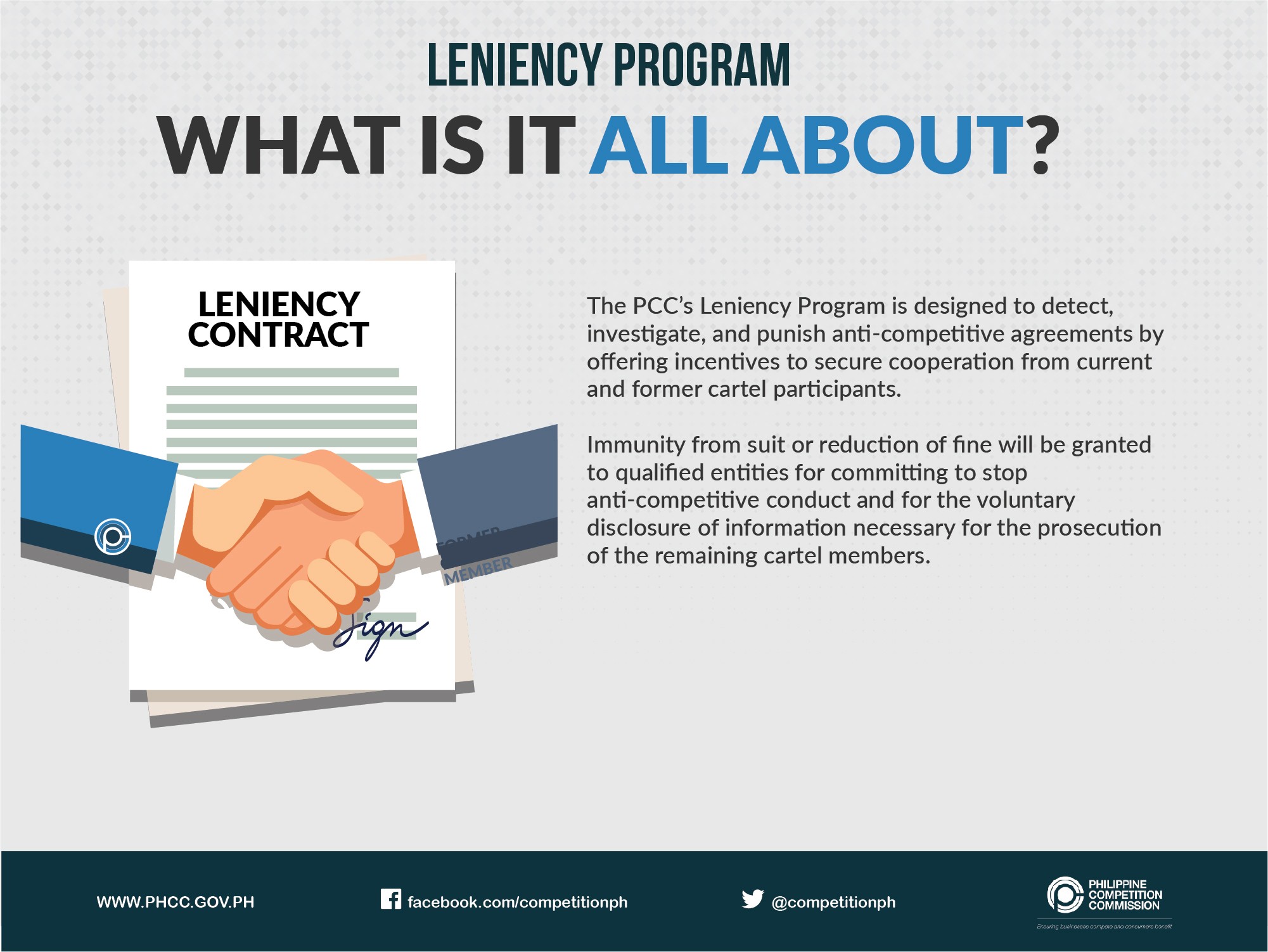
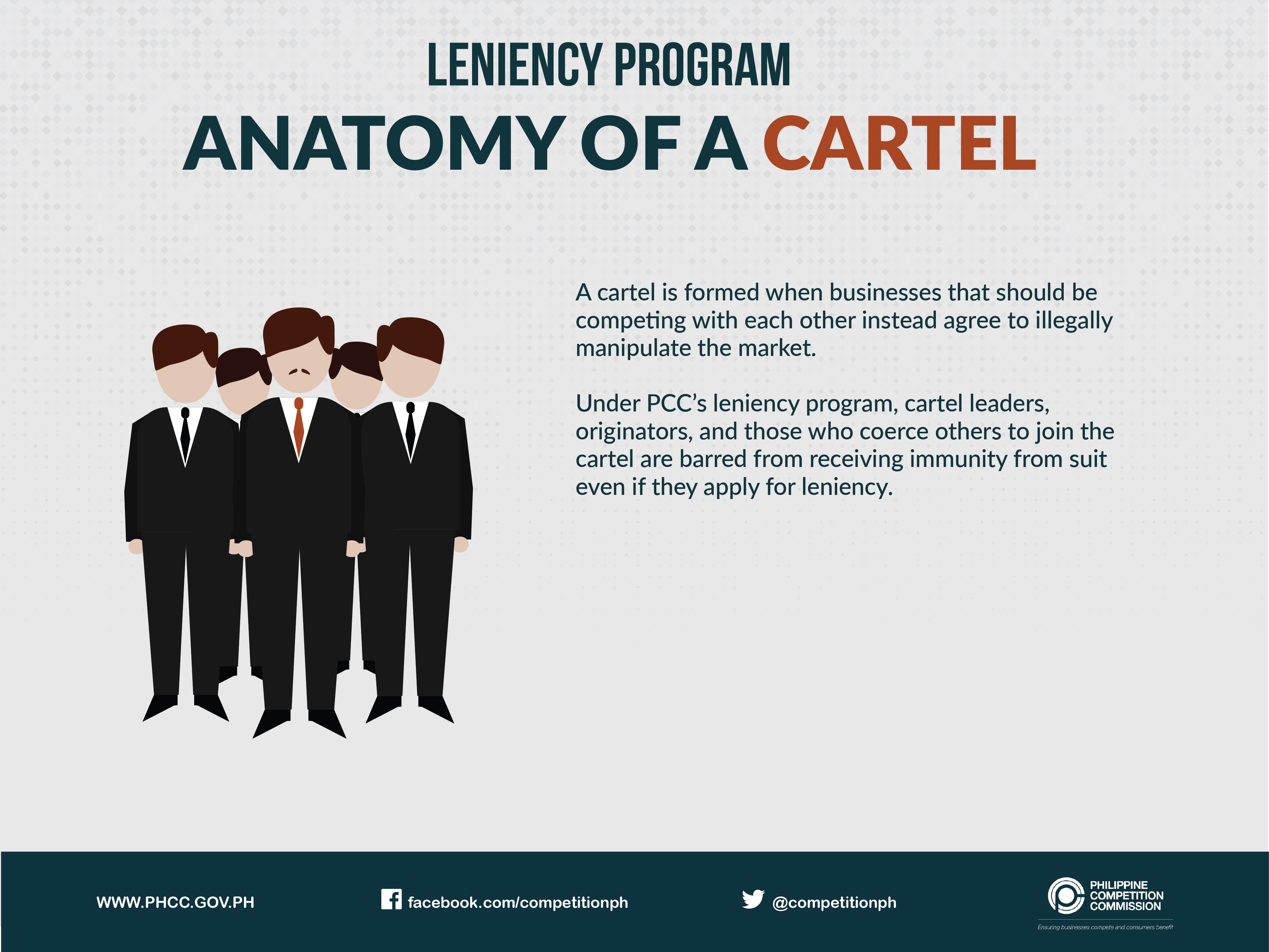
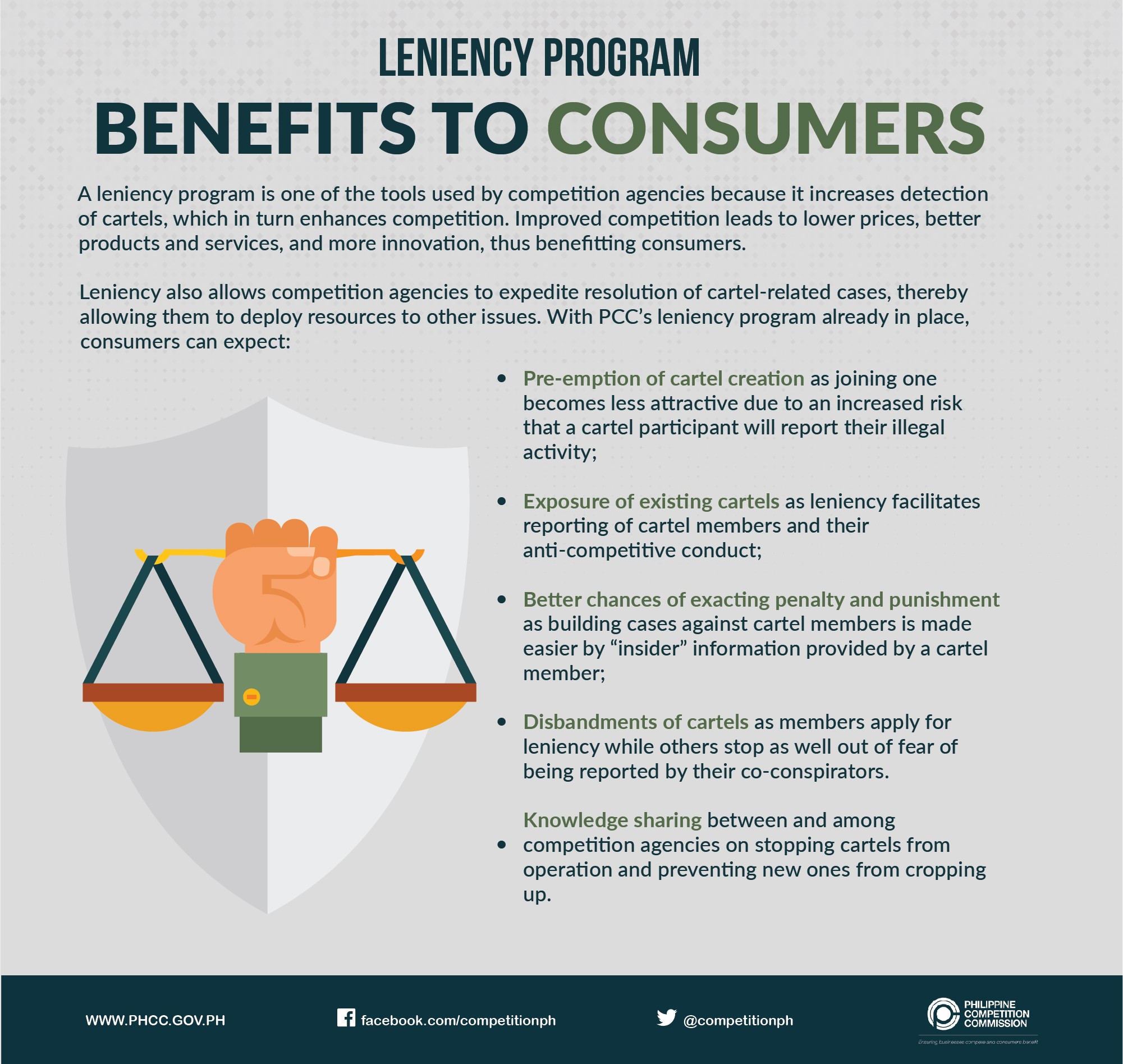
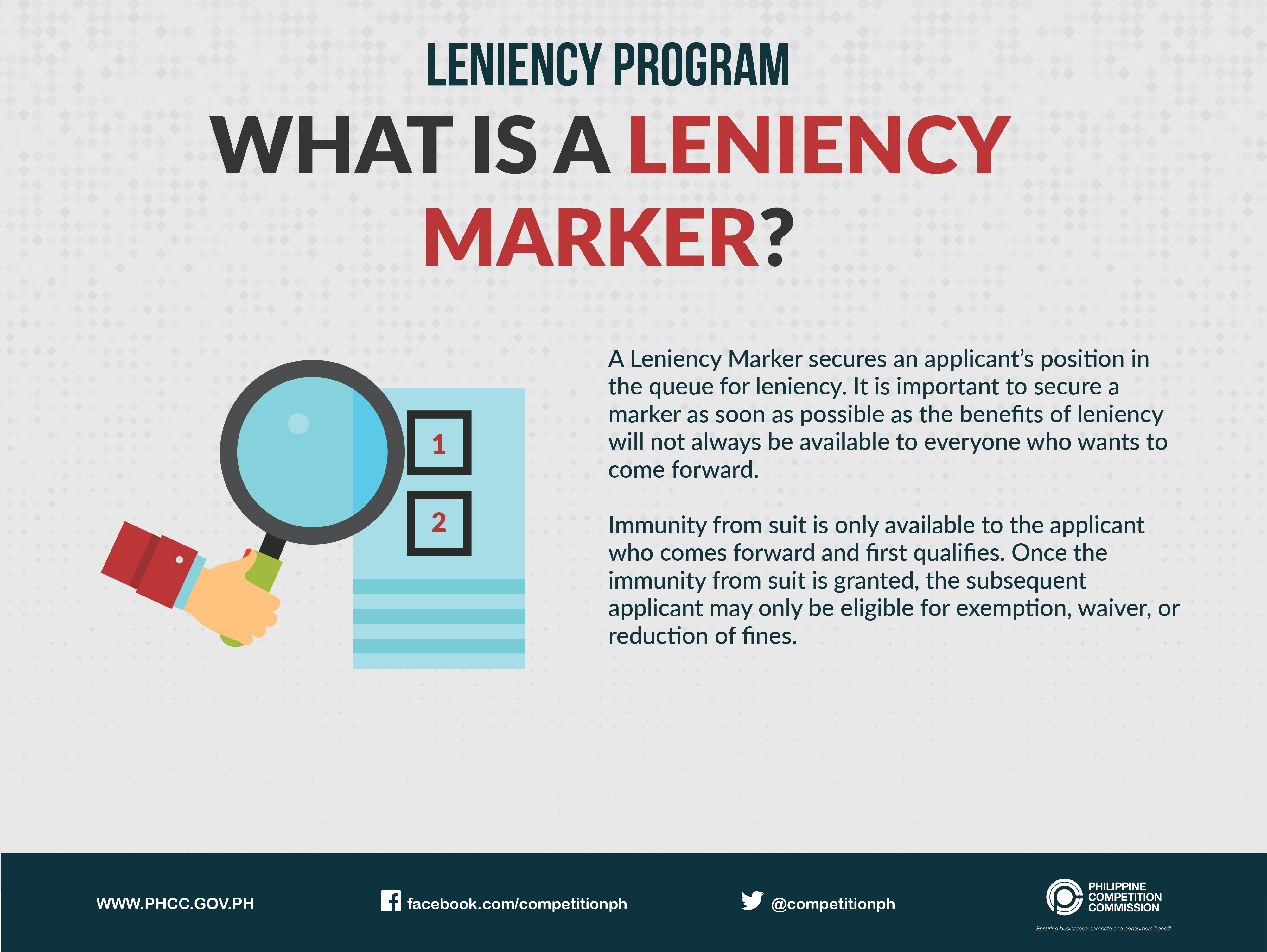
CARTEL BEHAVIOR COVERED BY THE LENIENCY PROGRAM:
Price-fixing
Price fixing occurs when competitors agree on pricing rather than competing against each other.
Bid-rigging
Bid rigging, also referred to as collusive tendering, occurs when two or more competitors agree they will not compete genuinely with each other for tenders, allowing one of the cartel members to win the auction or the bid.
Output restriction
Competitors agree to limit production by restricting output or setting quotas. This creates an artificial shortage in the market, thereby driving prices up.
Market allocation
Market sharing occurs when competitors agree to divide or allocate customers, suppliers or territories among themselves rather than competing with each other
PROCEDURE FOR AVAILING OF THE BENEFITS OF THE LENIENCY PROGRAM
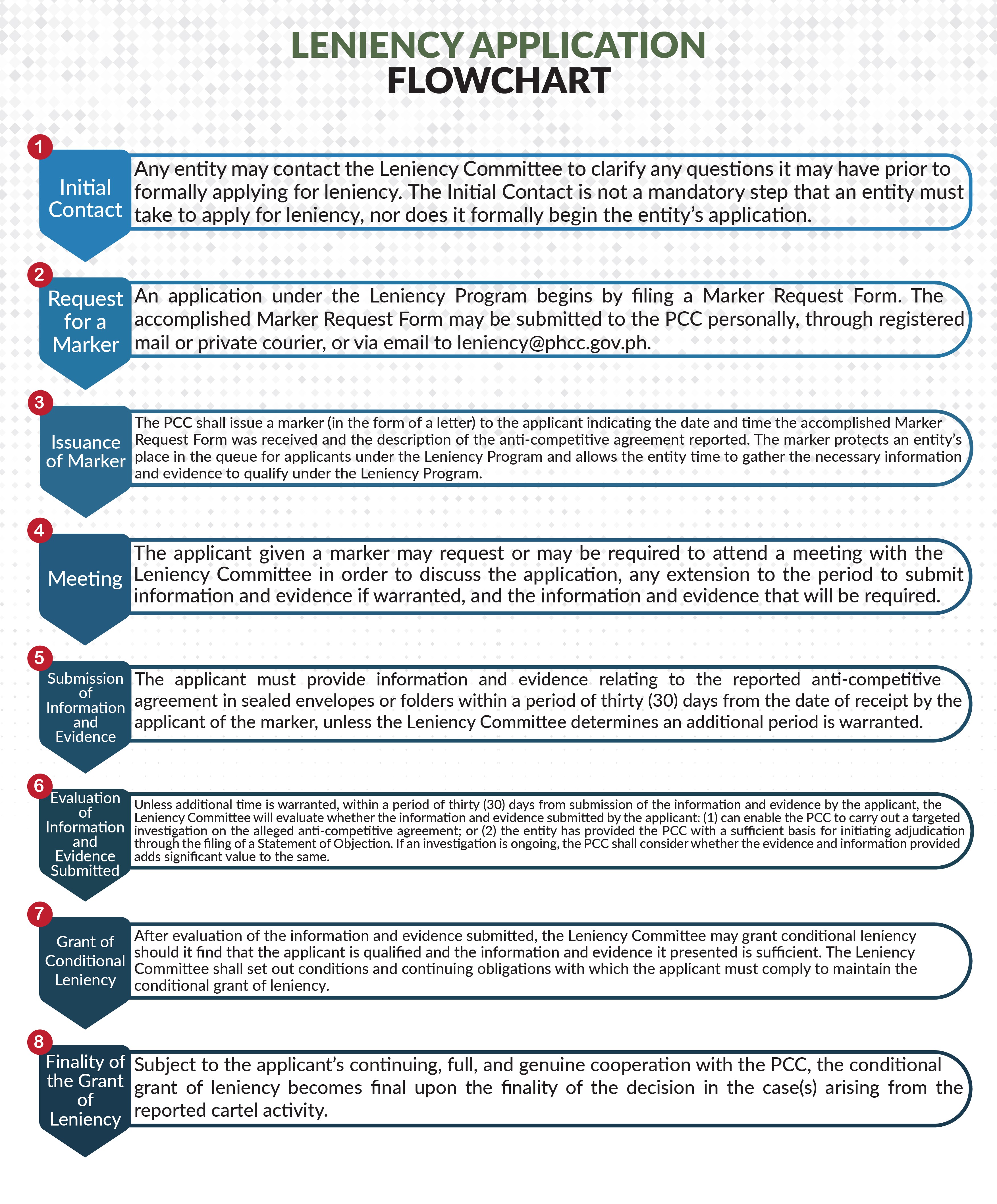
APPLY FOR THE PCC’S LENIENCY PROGRAM AND COOPERATE WITH OUR INVESTIGATION. YOU MAY BE ELIGIBLE FOR IMMUNITY FROM SUIT OR A REDUCTION OF FINES.
Anyone seeking to apply for leniency or who has any question about the Leniency Program may meet with the Leniency Committee at the PCC office or contact the Leniency Committee at (+632) 8771-9777 or (+63) 919-0618522 and through leniency@phcc.gov.ph. You may also write or visit the Leniency Committee at 25/F, Vertis North Corporate Center 1, North Avenue, Quezon City 1105.





